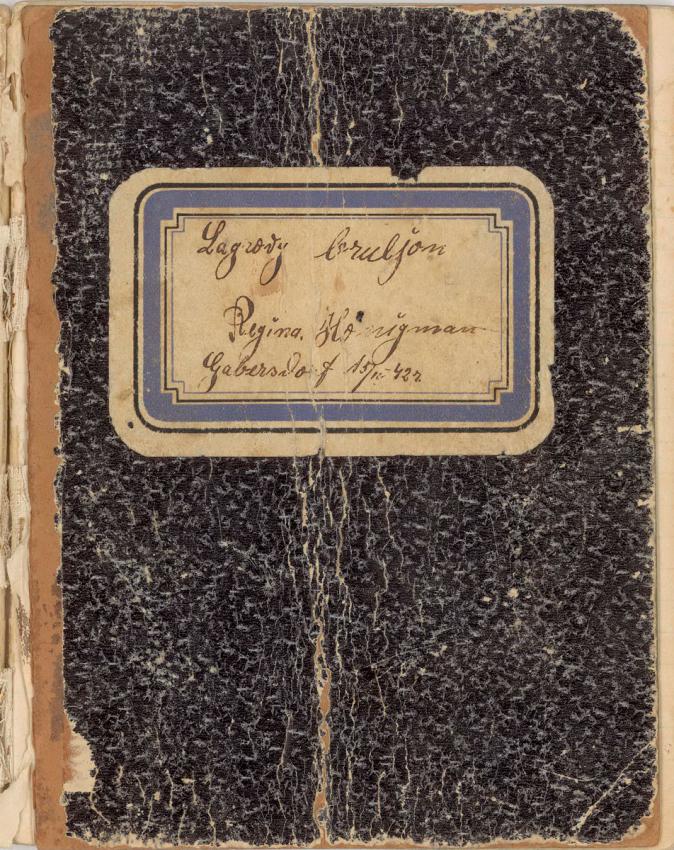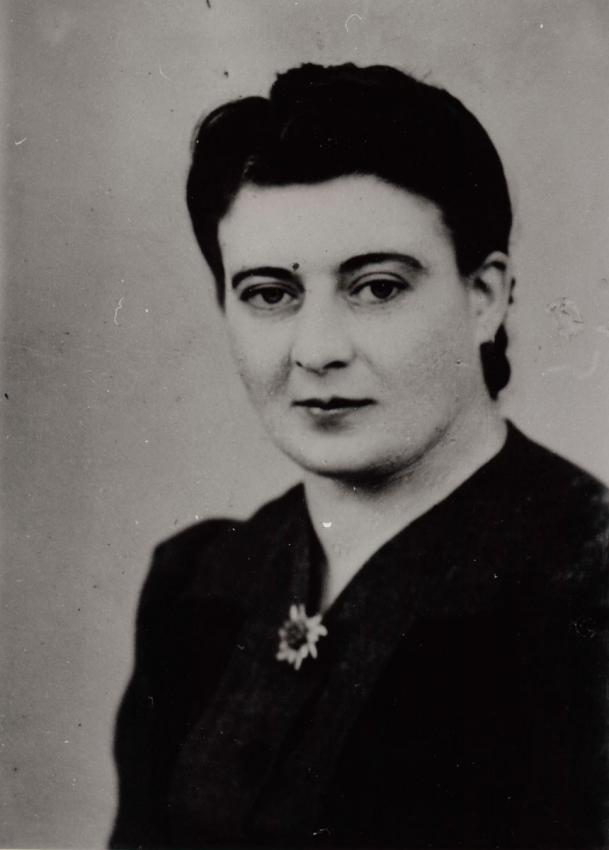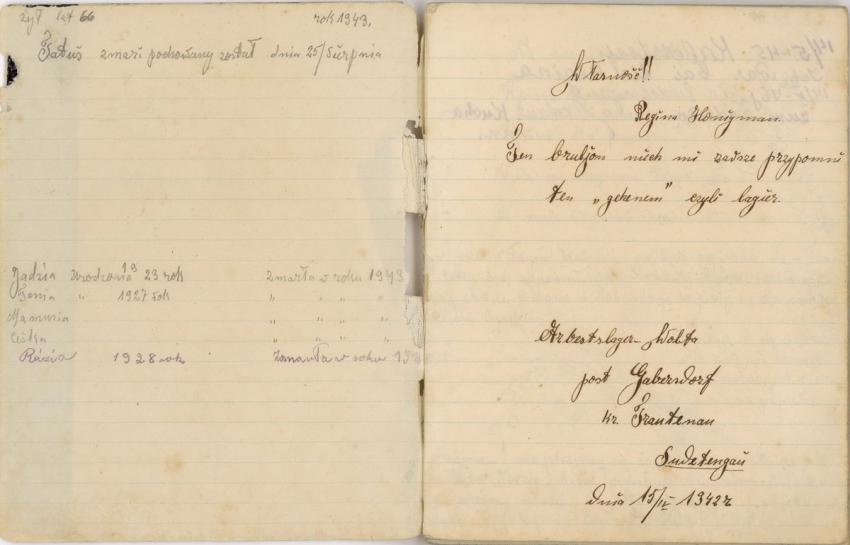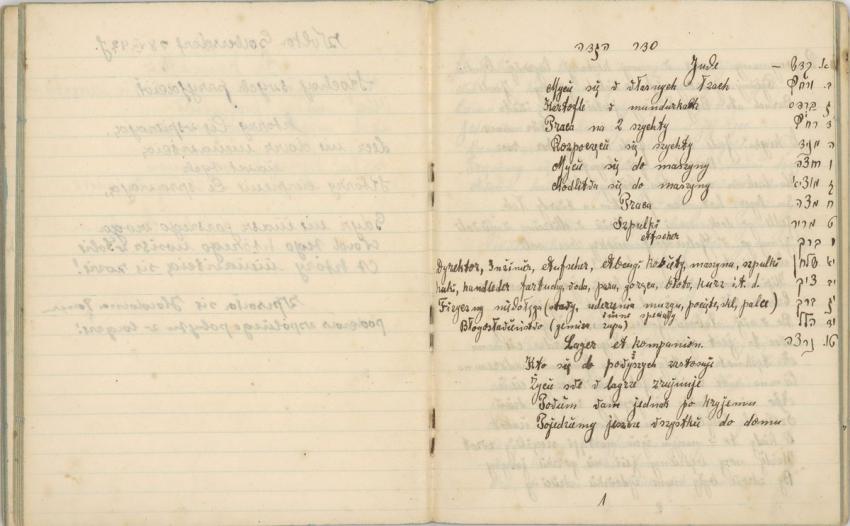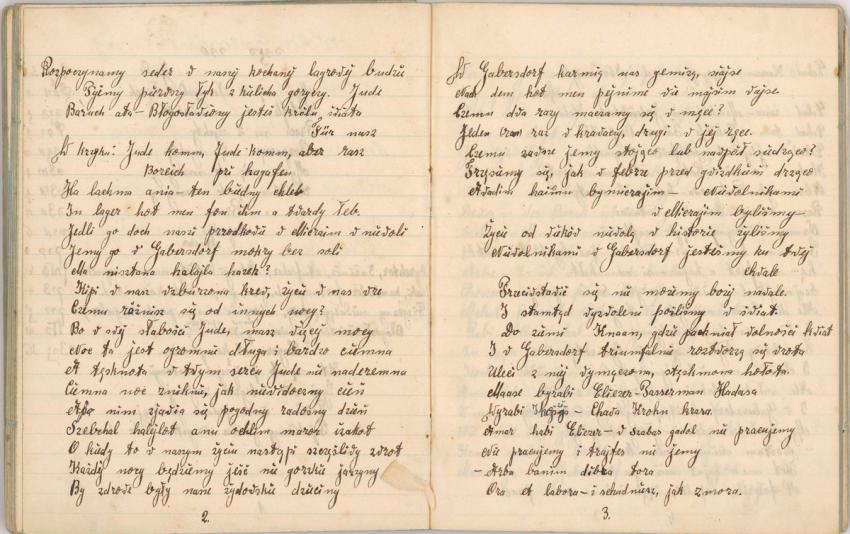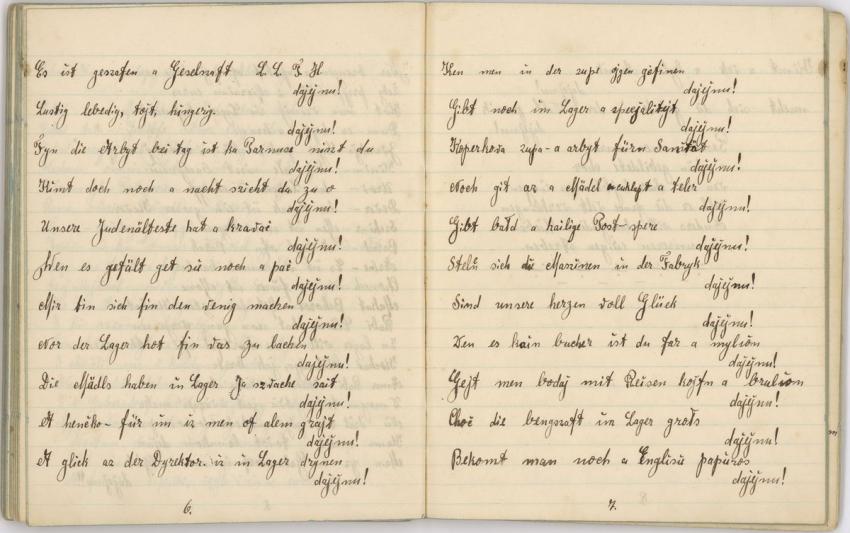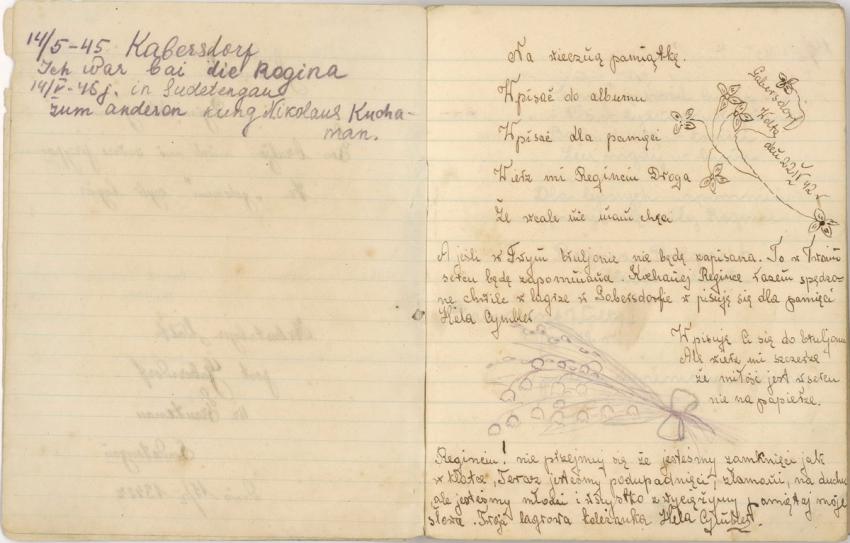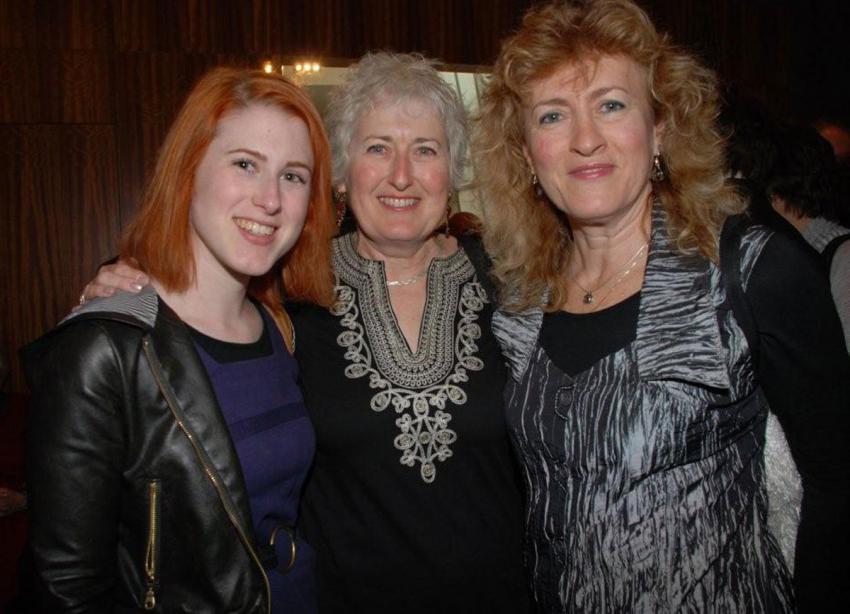Regina Honigman was born on the 12th of December 1918 in Zawierce, Poland. Soon after the Nazi occupation, each Jewish family in Zawierce was forced to send one family member for forced labor to Gabersdorf Camp. Thus, Regina found herself working from morning till night with other women in a factory that manufactured linen threads.
Regina's diary/autograph book tells much about the day to day lives of the women, and the texts, written with wry humor by Regina and her friends, say much about the resilient spirit of these young women and the contribution of their camaraderie in enabling them to face adversity.
"[…] At last, the desired moment comes. We go to bed and our eye close from exhaustion … But we, who dream of freedom, cannot sleep. …a cry breaks from our imprisoned hearts and many sighs drown in tears. … The moon smiles, the trees rustle- and a song of freedom comes from our hearts. We do not lose courage because we rebel in our hearts. We will achieve a better tomorrow in Eretz Israel.
Amen!!! "
[p. 54 of the diary]
With the approach of Passover, the "Holiday of Freedom" Regina wrote passages from the Haggadah , adapted to the life of the women who were themselves slave laborers, not in Pharoh's Egypt, but in a Nazi work camp in the Twentieth Century.
The traditional "order" of the Haggadah that opens the Passover Seder:
Kadesh (Blessing over the wine): Jude Jews
U’rchatz (Washing Hands): Wash in our tears
Karpas (Special Vegetable): Potatoes in their peel
Yachatz (Dividing the Matzah): Working two shifts
Magid (Telling the Story): Starting each shift
Rachtzah (Ritual washing of hands): Washing before approaching the machine
Motzi (Blessing):
Matza (over Matzah): Pray to the machines
Maror: (bitter herbs): Work
…
Hallel (Praising God): A blessing if we receive vegetable soup.
Nirtze (Conclusion): If we do not undertake all these things then the lager (camp) will kill
you, but I can tell you something in secret - we will return home yet
Ma Nishtana: Why is this night different from all other nights?
Because in our misery, as Jews we are stronger. The night is very long and very dark. In vain, the longing and loneliness in our Jewish hearts flows. Dawn is coming, another day of hope. …Oh, when in our lifetime will a day come, when we will not eat the bitter vegetables every night? When will our Yiddishe (Jewish) children have a gezunt (healthy) life.
Included and adapted by the women of Gabersdorf is the traditional song Dayeinu!!” ("it would have been sufficient") expressing gratitude to the Almighty for all of the gifts he gave the Jewish people:
[…]
Jolly, lively, Death, Hunger
Dayenu! (it would have been sufficient)
Another night comes along,
Dayenu!
Our Judenälteste ("Jewish leader") has a bed,
Dayenu!
When it pleases her she whacks us,
Dayenu!
We make nothing of the slaps,
Dayenu!
But the Lager (the group in the barrack) has a laugh,
Dayenu!
[…]
Regina survived the war but of her immediate family, only one brother survived. Her parents and sisters were murdered in Auschwitz.
At the end of the war Regina was in the DP camp in Bergen Belsen. The diary continued to serve her and inscriptions by fellow survivors were written on empty pages. One of those she met in the DP camp was Elias Lustigman and the two married in 1947. The couple immigrated to Australia where their two daughters were born, Fay and Esther. Regina passed away in Australia in 1992 and after her husband’s passing in 2005, her daughters donated the diary to Yad Vashem.
We seek your help to expand our research of Regina Honigman's diary:
Regina Honigman's diary includes names of many of the young women who were with her in Gabersdorf Camp. Finding some of these women or their descendants will facilitate our research regarding this author and enable us to add to our knowledge of these courageous women, their backgrounds and the lives they built when they were released from slavery to freedom.
Hela Cymbler, Behirah Hocherman, Regina Perlgricht, ManiaPariser,R.Kleinfeldowna, Helga Blumenfeld, Mania Goldszmidt, Cyla Friedman, Hanny Goldfaden, Guta S, Mici Spilman, Pola Szapiro, Fela Niciarz, Estera Holand, Gienia Wajnglik(owna), Irka Wolnerman, Bronislawa Zagorska, Rozia Sztirlberg, Hania Tombak(owna), Marie Blusztajn, Rozia Reich, Ruth Frichler, Rozia Berliner, Adela Birenstok, Lola Schor[u?], Sala Grossman, Jacka Butnik, Lotti Finger, Bela Kuchman[_w], Gusta Feiler, Maryla Lollman, Zosia Joachimowicz, Jochke Wasserberger, Genia[?] Lewkowicz, Regina Manesbaum, Edzia Wislicka, Pola Golenr[?], Henia Haliciewicz, Ruzia Merik, Karola Gar_iowna, Jadzia Sztainfeld, Hanka Apelbaum, Rusia Ajnveder.
If you are able to contribute information regarding any of the above mentioned individuals or regarding Gabersdorf Camp in general, please contact the artifacts collection of Yad Vashem’s Museum by phone: 972-2-6443598 or by email: museum.artifacts@yadvashem.org.il
Yad Vashem Artifacts Collection,
Donated by Fay (Lustigman) Eichenbaum and Esther (Lustigman) Gordon, Melbourne, Australia
